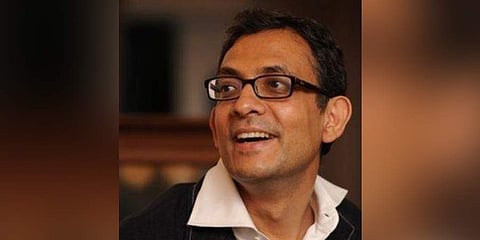

It has been all about uplifting the poor for Abhijit Banerjee and his wife Esther Duflo who, along with Michael Kremer, were awarded the 2019 Nobel Prize for Economics for their research which the Nobel Committee said "has considerably improved our ability to fight global poverty".
In a felicitation event at the Massachusetts Institute of Technology, Duflo emphasised the strides the world has taken in fighting poverty. "The world today is full of depressing news. In the middle of this, the one hopeful thing we have is that the fate of the world's poor has tremendously improved," she underlined.
Interestingly, Banerjee and Duflo have both worked extensively in West Bengal and engaged in multiple studies to uplift the deprived. In 2006, Banerjee was roped in by Bandhan Bank in collaboration with the World Bank for a study on ultra-poor households. The project began with Banerjee's model on randomisation by assigning people to treatment and control groups in the villages, said Bandhan Bank's CMD Chandra Shekhar Ghosh, adding that it managed to bring some villagers out of poverty.
One of the many people who has played a part in the couple's pioneering work to make the world a better place for the under-privileged is Jyoti Prasad Mukhopadhyay, who works with the Chennai-based IFMR Graduate School of Business these days.
Mukhopadhyay worked with Banerjee in West Bengal between 2007 and 2009.
"We had a project on ultra-poor households in Murshidabad where the idea was to provide them with a grant, so that they can start a livelihood, and study how they perform. It was a project with Bandhan, which is now a bank, and Dr Banerjee was the chief investigator in the study. Following the project's success, the same model was replicated in six different countries, based on which we published a paper. The model has also been implemented in Bihar, which is an ongoing project," he remembers.
Mukhopadhyay termed working with Banerjee "an enlightening experience". "He shared a lot of inputs that can't be found in textbooks. So, as a student of economics, I enjoyed the interactions. We have travelled together where he would share experiences and draw parallels on the nature of poverty across the globe. Through his anecdotes, one can build theories," he recounted.
Mukhopadhyay stressed his mentor's belief in fieldwork. "We travelled to the remotest hamlets to meet people and talked to them to understand their behaviour. The Murshidabad project was a pilot. One unique aspect to his poverty research is to ask innovative questions. He believed that even the poor have the ability to become entrepreneurs. Why don't you give them a non-repayable soft grant and let them decide what enterprise they want to start, he would urge us.”
But Banerjee was also wise enough to suggest that "at the same time we handhold them, provide them training, create a market linkage and then let them run their business".
The prescription has worked. “Most of the beneficiaries were women. The model has been successful in Bengal," Mukhopadhyay said.